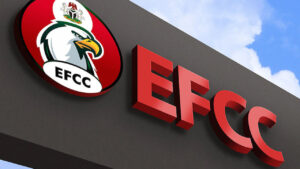Request for customers’ social media handles, other details – CBN orders banks

The Central Bank of Nigeria (CBN) has issued new regulations mandating financial institutions to gather additional customer information, including social media handles, email addresses, telephone numbers, and residential addresses.
This move aims to strengthen the identification process within the banking system. The CBN outlined these requirements in its recently released document titled ‘Central Bank of Nigeria (Customer Due Diligence) Regulations, 2023.’
The CBN stated that these regulations were established to enhance customer due diligence measures for financial institutions under its regulatory oversight.
The goal is to ensure compliance with the provisions of the Money Laundering (Prevention and Prohibition) Act (MLPPA), 2022, Terrorism (Prevention and Prohibition) Act (TPPA), 2022, Central Bank of Nigeria (Anti-Money Laundering, Combating the Financing of Terrorism and Countering Proliferation Financing of Weapons of Mass Destruction in Financial Institutions) Regulations, 2022 (CBN AML, CFT, and CPF Regulations), and international best practices.
Under the customer identification section, the CBN specified that financial institutions must identify their customers, whether they are permanent or occasional, natural persons or legal entities, or legal arrangements.
The required information for individuals includes legal name and any other names used, permanent address, residential address, telephone number, email address, social media handle, date and place of birth, Bank Verification Number, Tax Identification Number, nationality, occupation, public position held, and name of employer.
The CBN also stated that individuals must provide an unexpired passport, national identification card, residence permit, social security records, or driver’s license as proof of identification.
Additionally, financial institutions are required to gather details regarding the type of account, nature of the banking relationship, signature, and politically exposed person status.
The document also outlines separate requirements for legal entities and legal arrangements. The CBN emphasized that these regulations apply to all financial institutions under its supervision.
(Tribune)











